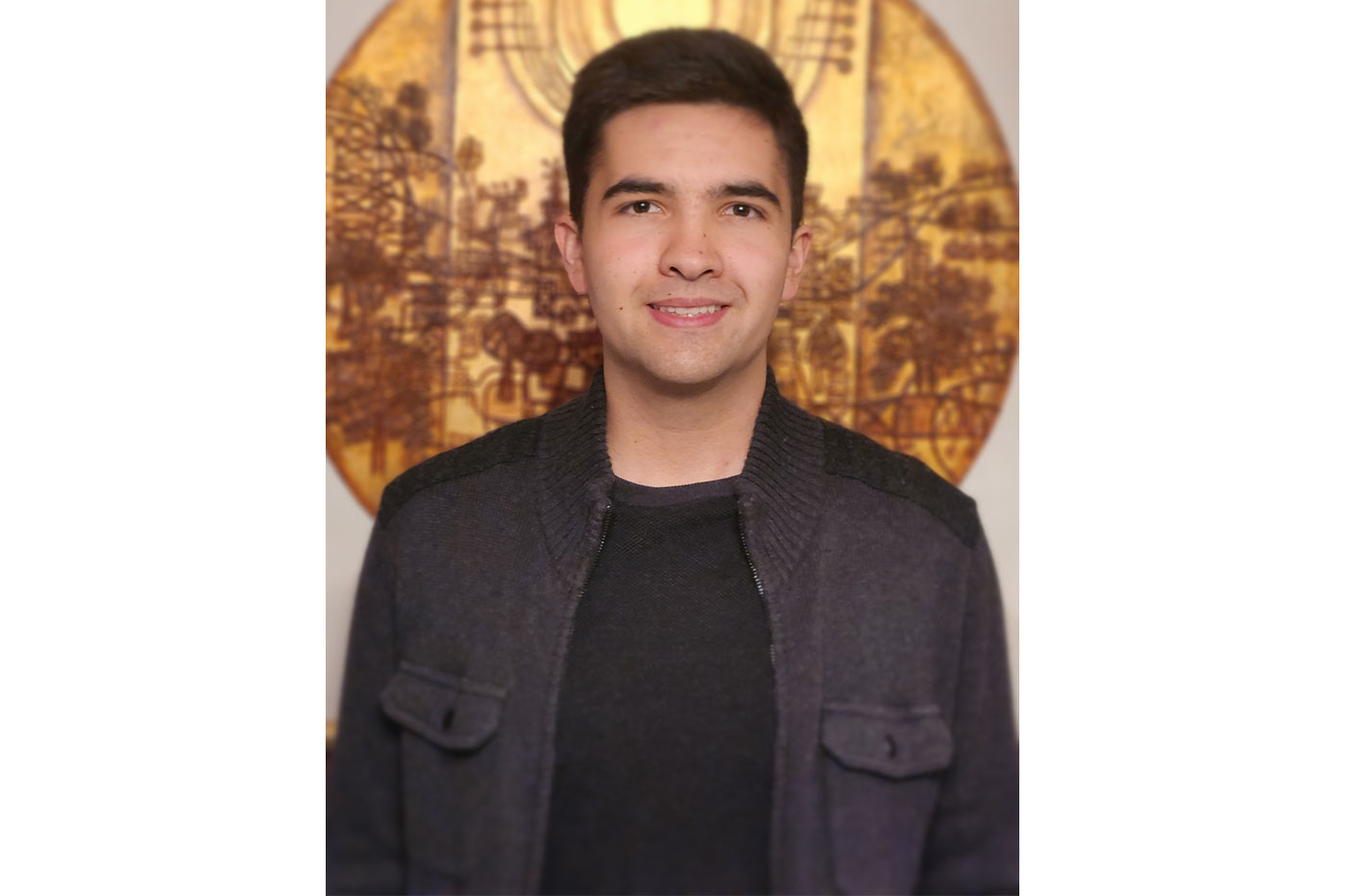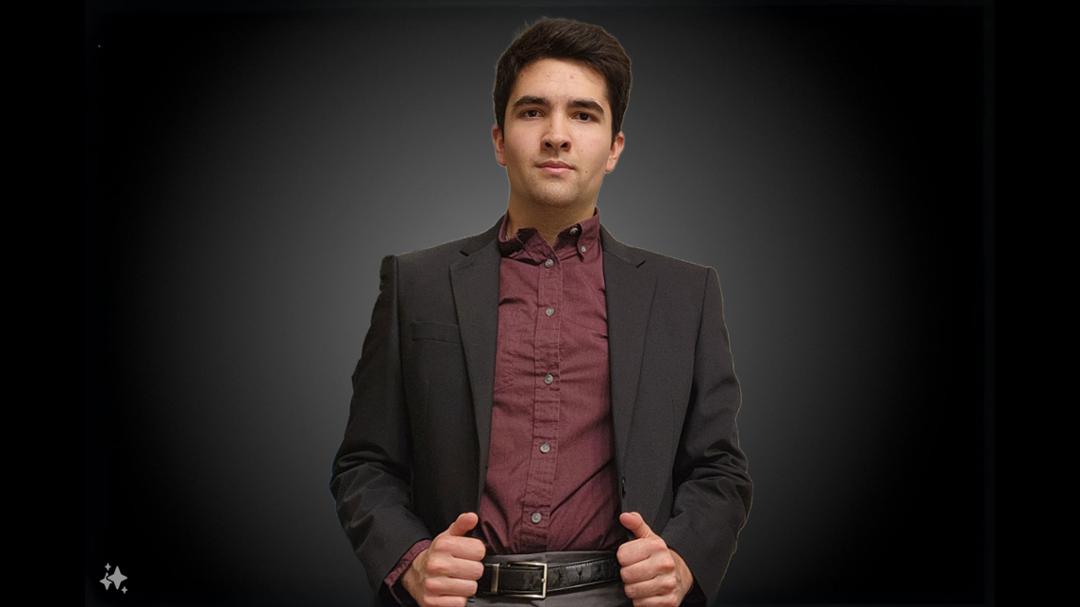Bradley Vigil blends growing appreciation of mathematics with lifelong passion for helping others into an impactful research initiative.
Like many people, Bradley Vigil wasn’t necessarily born to be a mathematician.
But math had appealing qualities like rigor, rhythm and cadence, and he worked diligently to become fluent.
He stayed after it and kept on crunching the numbers. When he was in high school, he asked family members for help with math homework. Soon, like a complicated equation, everything snapped into place. What once might have eluded his grasp had become amazingly sharp and made sense.
In some ways, math is now his primary language. Math is the way he understands the world as a fourth-year doctoral student at Texas Tech University. Likewise, it is also how he views and responds to pressing problems as a budding gifted scholar within the Department of Mathematics and Statistics in the College of Arts & Sciences.

“As I grew older, I fell in love with math,” he said. “Now, it’s still difficult, but I am at the point where I like the difficulty so much because I love learning. Difficulty is relative.”
Spoken like a true mathematician.
Vigil’s commitment to and passion for math have helped him ascend to new academic heights. Just recently, he was named to the second cohort of Quad Fellows, a prestigious group of master’s and doctoral students pursuing studies in science, technology, engineering and mathematics (STEM).
Although the Quad Fellowship is in its infancy, Vigil is among select company. There are only 50 Quad Fellows chosen from around the world. Vigil learned about it early in his Graduate School career, thanks to the Office of Prestigious External Student Awards within the Honors College.
“It was a little intimidating,” he said. “I was reading up on the fellowship and it’s really selective, and I was like, ‘Well, I might not have the best shot, but I have a shot,’ so I was going to go for it.”
He was unsuccessful in his first attempt a year ago, but that only caused him to redouble his efforts.
The road to the Quad Fellowship is demanding and competitive. All applications receive an initial review from experts in the researcher’s field. That step is followed by several rounds of interviews where applicants not only talk about who they are but also about the purpose of their research, why it matters and the positive impact the research will have on society.
“After the interviews, we waited a couple of months to hear back, and those were the longest two months of my life,” he said.
Along the way, there was a point where Vigil was among 3,000 finalists for one of the 50 slots.
“That seemed like it was going to be hard to dwindle that list down,” he said with a smile.
Math and neurodegenerative diseases
For Vigil, talking about his research came naturally. His specific field within mathematics is algebraic topology, which uses algebra to study the global properties of spaces. In his research he is working to develop new topological methods to look at epilepsy and neurodegenerative diseases in general.
Vigil’s work involves developing and applying mathematical theory to look at data associated with medical tests such as an electroencephalogram (EEG), which measures activity in the brain, or a magnetic resonance imaging (MRI), which produces detailed images of the human body’s internal structures. From these, Vigil can then extract topological features from the data.
“It encompasses a lot of different areas,” he said. “We look at the data and try to find the shape of the data.”
Vigil compares this process to the Triwizard Tournament from the “Harry Potter” books, specifically the maze at the end.
“They have to walk through a maze, but they don’t know the shape of the maze as far as its pattern,” he said. “They just go in blind, so they are only looking at what might be considered the local structure. What we’re doing with the data is saying, ‘Let’s zoom out a little bit and forget the local structure.’”
A short trip to make a big difference
Vigil grew up in Canyon, Texas, and came to Texas Tech looking for an opportunity to blend his affinity for math with his desire to help others.
“I have several family members who have Alzheimer’s disease, and there are some who have epilepsy,” he said. “I would like to see them live life to the fullest, but they’ve maybe been robbed of some of the potential life they could have had. That is part of what drove me to this research.
“I knew I wanted to do something math-related, but I just didn’t know what it was. I also love helping people achieve their goals and maybe live a better life. I didn’t know how to do both at the same time before coming to the grad school and talking with professors. Now I have learned you can help people with math.”
The Quad Fellows are scheduled to convene for a summit in Washington, D.C., later this year. It is a chance to network and build relationships with the possibility of collaborating on research initiatives where such strategic alliances make sense.
“The Quad Fellowship aims to build connections among the next generation of scientists and technologists. The program is designed to support academic excellence and promote cross-cultural understanding and collaboration among participating countries,” indicated the news release announcing Vigil’s selection. “By bringing together students from different parts of the world, the fellowship creates a network of innovators who can address global challenges and drive technological advancement.”
The fellowship is administered by the Institute of International Education, a global nonprofit that manages a number of prestigious scholarship and fellowship programs. Following this academic year, Vigil will transition to a Senior Fellow and remain connected to the organization and its members.
“There are a few other Fellows whose research ties in with what I am interested in pursuing,” Vigil said, “so I definitely think there are collaboration possibilities. Once you’re in it, you’re in it for life.”
Also in his immediate future plans is an ending and a beginning. Vigil is steadily wrapping up his doctoral dissertation, and once that significant hurdle is cleared, he is looking to transition into the workforce.
He plans to remain in academia, looking to land a post-doctoral position with a professor involved in research that aligns with his own.
Vigil isn’t sure what that will look like, but he has a mathematician’s certainty about one thing.
“Here at Texas Tech, anything is possible,” he said. “I believe Texas Tech is a leader in interdisciplinary collaboration, and this fellowship proves that whatever you set your mind to at Texas Tech, it’s possible.”

